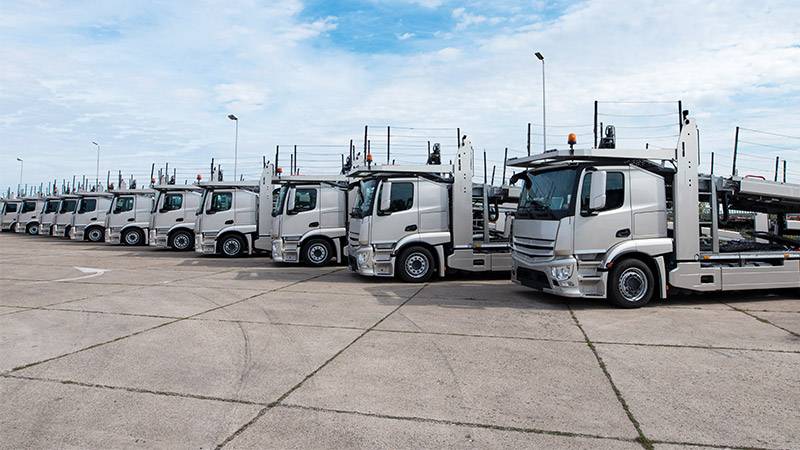A cutting-edge initiative in Raymond, New Hampshire is taking major strides to address air pollution, an increasingly pressing environmental concern. Located off Route 101, the soon-to-be-established Mega-X Truck Stop, branded as the “largest truck stop in New Hampshire,” is integrating plug-in power pedestals, which will actively reduce the idling of trucks and the associated emissions. This venture is a component of the New Hampshire State Clean Diesel Program.
The U.S. Environmental Protection Agency (EPA), in conjunction with the state’s Volkswagen Environmental Mitigation Trust Fund, is financially backing this green endeavor. The combined funding will enable the installation of nine plug-in power pedestals, facilitating 34 electrified parking spaces. These electrified spots will supply long-haul truckers with an external electricity source, eliminating the need to keep their engines running and thereby reducing the associated air pollution.
This initiative aligns with the federal Diesel Emission Reduction Act’s objectives. This act sees the EPA disbursing funds to states to support projects targeting the reduction of emissions from older diesel engines. Notably, the Raymond site will not only feature these electrified parking spaces but will also include amenities like a convenience store, a drive-thru coffee shop, 18 fuel pumps, and more than 100 regular parking spaces, operating round-the-clock.
Despite its eco-friendly aims, the project has stirred some debate at the local level. While it has garnered approvals from essential entities like the state Department of Environmental Services and the Raymond Planning Board, there are voiced concerns from residents and officials. These concerns largely revolve around potential groundwater contamination from the site’s development and the projected increase in heavy-duty diesel vehicle traffic. However, many residents are hopeful about the project’s potential economic benefits, such as job creation and revenue for the town, situated in a prime industrial area adjacent to the highway.
Shorepower Technologies, an Oregon-based firm renowned for its truck stop electrification services across the nation, is collaborating with the New Hampshire State Clean Diesel Program. This partnership aims to introduce the state-of-the-art idle-reduction technology at the Raymond site.
“The beauty of this funding is it targets what’s called NOx, the smog-forming emissions that tend to be pretty impactful to people’s health,” said Jessica Wilcox, mobile sources supervisor at DES. “The funding is definitely going toward a public health benefit.”
Recent developments have seen the Department of Environmental Services Commissioner, Robert Scott, request a project fund of $70,143 from the Executive Council. According to the New Hampshire Bulletin, this financial request is a combination of 45 percent federal funding and 55 percent VW settlement funds.
The funding focus on reducing NOx emissions, known for its significant health implications, is a notable aspect of this project. As Jessica Wilcox, the mobile sources supervisor at DES, puts it, the funding promotes public health. Interestingly, while the state’s Clean Diesel Program has traditionally funded vehicle or engine replacements, the Raymond truck stop project marks a departure from this norm, offering something unique.
A key highlight of the electrified pedestals, as highlighted by Scott, is that they will not only provide electricity but also cable TV attachments for truckers. Furthermore, by offering this external electricity source, truck drivers can comfortably utilize cabin amenities during their mandated 10-hour rest periods without the need for engine idling. This move is set to make a substantial difference, given the considerable emissions attributed to idling trucks.
While modern diesel engines are increasingly cleaner due to stringent federal regulations, numerous older engines, which tend to be more polluting, remain in operation. In light of this, electrified truck stops can play a pivotal role. Apart from emission reductions, such stops can enhance the overall experience for drivers—offering them quieter, more restful breaks, and potentially bolstering driver safety and retention.
More inspiring green news similar to this:


